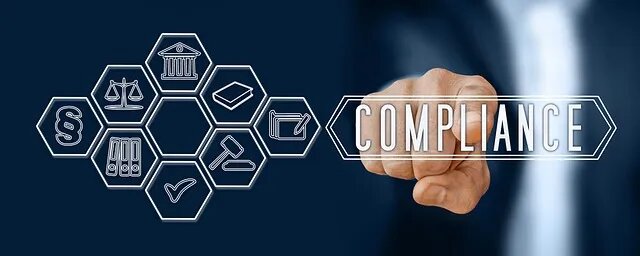
In today’s volatile business environment, disruption can come from anywhere — economic downturns, regulatory changes, technological innovation, or even a sudden shift in consumer expectations. For organizations aiming not just to survive but thrive in such conditions, the role of the Chief Compliance Officer (CCO) has evolved into a strategic powerhouse. Far from being confined to policing rules, the modern CCO plays a pivotal role in future-proofing a business.
This means ensuring that an organization is agile, resilient, and ethically sound — prepared for both foreseeable and unforeseen challenges. Let’s explore how CCOs can lead this transformation.
Building a Culture of Compliance and Ethics
The foundation of any future-proofed business is a culture rooted in ethics. A CCO doesn’t just enforce regulations; they shape an organizational mindset where doing the right thing becomes second nature.
- Ethical Decision-Making: By embedding ethical reasoning into everyday operations, CCOs help teams make decisions that reduce risk while enhancing trust.
- Tone from the Top: CCOs influence leadership to model integrity, which inspires employees to follow suit.
- Continuous Training: Regular and engaging compliance training ensures employees understand both the “letter” and “spirit” of the law.
When compliance is part of the DNA, companies are better prepared to adapt to changes without compromising their core values.
Anticipating Regulatory Shifts
Regulatory landscapes are dynamic, and businesses that fail to anticipate changes risk costly penalties or operational disruptions. A forward-thinking Chief Compliance Officer actively monitors emerging laws and industry standards.
- Global Regulatory Scanning: For multinational companies, this means staying ahead of evolving rules across jurisdictions.
- Scenario Planning: Preparing “what if” scenarios for potential legislative changes allows the organization to pivot quickly.
- Regulator Engagement: Proactively engaging with regulators can provide insights into upcoming policy trends.
This proactive stance transforms compliance from a reactive function into a strategic advantage.
Leveraging Technology and Data Analytics
Technology is both a disruptor and an enabler. CCOs who embrace advanced compliance technologies can streamline processes, improve detection capabilities, and anticipate risks before they escalate.
- Automated Monitoring Tools: AI-driven systems can scan transactions, communications, and market activity for red flags in real time.
- Predictive Analytics: Data modeling can forecast compliance vulnerabilities, helping to mitigate them before they cause harm.
- Centralized Compliance Dashboards: These tools enhance visibility, enabling CCOs to make informed decisions quickly.
When properly implemented, technology empowers the compliance function to be faster, smarter, and more effective.
Strengthening Risk Management Integration
A key component of future-proofing is risk anticipation. While risk management teams traditionally focus on operational or financial threats, the CCO ensures that compliance risk is integrated into the broader enterprise risk framework.
- Holistic Risk Assessment: This approach ensures compliance risks aren’t treated in isolation but are interconnected with business strategy.
- Cross-Functional Collaboration: CCOs work alongside IT, HR, finance, and operations to identify emerging threats.
- Crisis Preparedness: Pre-defined compliance response plans help minimize reputational and financial damage during incidents.
A unified risk management strategy ensures that the company remains steady in uncertain conditions.
Driving ESG and Corporate Responsibility Initiatives
Environmental, Social, and Governance (ESG) priorities are now firmly on the business agenda. For many stakeholders — from investors to consumers — ESG is a deciding factor in trust and loyalty.
- Sustainability Compliance: CCOs ensure operations meet environmental standards and avoid greenwashing claims.
- Social Responsibility Oversight: This includes ensuring labor practices are ethical and inclusive.
- Governance Integrity: By aligning governance structures with transparency and accountability, the CCO fosters stakeholder confidence.
A strong ESG strategy enhances resilience and positions the business as a leader in responsible growth.
Enhancing Third-Party Risk Oversight
In an interconnected business world, a company is only as strong as its partners. A CCO plays a critical role in ensuring third-party relationships do not become the organization’s weakest link.
- Vendor Due Diligence: Comprehensive checks before onboarding any vendor or partner.
- Ongoing Monitoring: Continuous oversight of supply chains and external contractors.
- Contractual Safeguards: Embedding compliance clauses into agreements ensures accountability.
By managing third-party risks effectively, CCOs safeguard the organization against reputational harm and regulatory exposure.
Championing Agility in Compliance Programs
The speed of change in modern business means that static compliance programs are quickly outdated. Future-proof CCOs ensure programs are agile, adaptable, and scalable.
- Modular Compliance Frameworks: Easily updated policies to reflect new laws and business models.
- Regular Program Audits: Continuous assessment ensures relevance and effectiveness.
- Employee Feedback Loops: Gathering insights from frontline employees to detect emerging issues early.
This adaptability ensures the compliance function remains relevant and effective in any scenario.
Conclusion
The modern Chief Compliance Officer is not just a guardian of rules — they are a strategic architect of resilience. Through proactive risk management, ethical leadership, technological innovation, and integrated governance, CCOs can future-proof a business against uncertainty.
In an era where disruption is the norm, organizations that invest in forward-thinking compliance leadership gain a significant competitive advantage. By embedding agility, foresight, and integrity into the corporate framework, CCOs ensure their companies are not just prepared for the future — they are ready to shape it.
Published by Conselium Executive Search, the global leader in compliance search.

